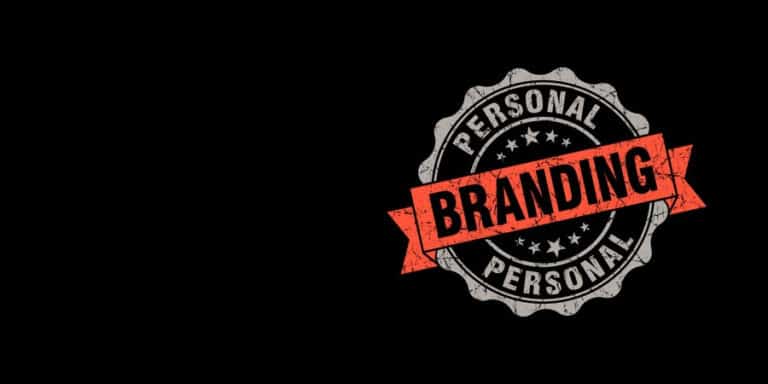My blog posts recently have come out of necessity. As a recruiter I see a myriad of “don’ts” and as a recruiter with access to a captive audience, I feel the need to share them with you. Below are my top ten things NOT to do while job searching – or even after you’ve landed that job! If not, you could end up on a “Wall of Shame” similar to the one a former coworker had in his cubicle. The things I’ve seen… I still shudder!
1. Email Addresses
You can get a free email address anywhere – hotmail, google, yahoo, your ISP, etc. – and there are a lot of options. You can have a personal email address that’s funny, or raunchy, or an inside joke, that’s ok. But to ensure you aren’t the laughing stock of the recruiting world, create a new email address for job searching. If your email address is already professional, you can skip this. But I really like to see something with your name (be it FirstLast, First_Last, FLast, First.Last… you get my point). It’s not very professional to see anything with inappropriate or misspelled words, or nicknames, it’s all so confusing. Additionally, with the amount of spam emails you get, the responses from recruiters – or hiring managers – can get easily lost in your massive inbox. If you make a new email address and ONLY use it for job applications and correspondence (no mailing lists, no newsletters, no giveaways), this ensures that you’ll have less of a chance to miss an important email – say, an interview request, or a job offer!
2. Voicemail Messages
If your name isn’t on your voicemail message, often times we don’t know if we actually reached you. I can’t tell with some of the voicemail messages I’ve listened to, but here’s a good example of how they should sound – “Hello, you have reached the voicemail of Jennifer Gallagher. I’m sorry that I cannot take your call, but at the tone, please leave your name, number, and a message and I will return your call at my earliest convenience.” Short, simple, to the point. Please don’t say “hi, leave me a message”, “you know what to do”, or “yo, I can’t come to the phone right now”. Often times your voicemail is one of the first impressions people make… and the above examples don’t help. Ensure you check your messages, it’s hard to let you know about a great job when your voicemail is full.
3. Contact Information
Ensure you’ve got the right number and email. If you’ve changed your contact information, update your resume. Update your information on the job boards. Update your LinkedIn profile – if you have contact information listed. That way, when you start job searching – or apply to jobs – we can contact you. I’ve had to reject some really good resumes because I haven’t been able to get in touch with the candidates.
4. Resume
I’ve covered this in greater detail in a previous post (which you can find here), but just as a reminder. Don’t overly format your resume – unless you are going for a design position, flash isn’t necessary. Also, there are times when a company will want to put your resume in a certain format, and it’s so much harder with all sorts of formats. Have a PDF and a Word (or another word processing program) copy. Bullets work great in resumes – point out the top things you did in each job. Differentiate between degrees earned and courses taken.
5. Replying to Communication from a Recruiter or Company
Timeliness is the name of the game these days. I’ve seen positions go from brand new to closed in less than a day. There are a lot of job seekers out there. If you apply to a job and someone contacts you, at least reply to their email or message and let them know when you can speak, or that you are no longer available. This way we won’t keep bugging you and you won’t get frustrated that recruiters keep pestering you.
6. Keep a Balance between Confident and Cocky
Don’t brag, but speak about your accomplishments in a positive manner. And don’t exaggerate what you’ve done – chances are we’ll either see through it or it’ll come out eventually. Stick to the facts with verifiable and measurable details. If you say you’ve increased productivity by 50%, be sure to have specifics.
7. Dress the Part
Even if it’s just a quick “meet and greet” with your recruiter, dress to impress. Unless you have a really good reason – like you’re coming from work – you should dress professionally. In fact, even if you’re coming from work, you should dress well. Casual doesn’t mean careless. Clean and presentable isn’t difficult. Remember, you are advertising yourself, so do it well.
8. Social Media
Almost everyone these days has at least one form of social media account. Instagram, Facebook, Twitter, it’s all searchable online. Even LinkedIn profiles count. My first piece of advice – think about what you post. It’s fine to have conversations with friends on various issues, but make sure you’re being smart about what you post. If you are applying for a position with a specific company, make sure you’re not directly – or indirectly – bashing them. For example, if you want to go work for Pepsi, but hate their soda and preach about it all the time… it’s probably not the best fit. Obviously, this is a silly example, but you’d be surprised what I’ve seen. But more on that another time.
9. References
While you don’t have to list them on your resume (avoid the “References Provided Upon Request” faux pas), make sure you have a list of current references – with updated contact information – when you start applying for jobs. Let them know you are starting your job search, or that a specific company or person will be calling them. And make sure you have a good idea of what your references are going to say. There’s nothing worse than thinking you have a great candidate for a job only to have their references tear them apart.
10. Stay Organized!
This is my absolute favorite point. Aside from keeping a calendar so you don’t double book yourself, keep a list of all the companies and jobs you’ve applied for and interviews you’ve gone on – this is one I can’t stress enough. A lot of companies are cracking down on people double – or triple – submitting their resumes for jobs. This is more important if you’re working with at least two recruiters. If you apply for jobs (or to companies) through multiple vendors, there is a chance of all of your applications being thrown out. If a recruiter asks you where you’ve applied previously, they aren’t fishing for leads, they want to make sure they provide you with new opportunities that you don’t know about, and those which you aren’t already being considered. I’m sure there are a lot of blind jobs online (jobs where you don’t know the end company), but no firm should ever submit your resume without naming the client. If they do, it’s best to work with another firm. Your organization tells a lot about your character and honesty as well. If you keep record, you’ll save yourself the trouble of hearing about a job multiple times, and you’ll save the recruiter the embarrassment of having a submittal rejected.
In conclusion, putting just a bit of effort into your presentation will go a long way in establishing credibility with employers and recruiters. My final piece of advice is to not get discouraged. Sometimes the perfect job will fall in your lap, and other times the process will take a bit more time. Best of luck with your job search!
Image courtesy of iosphere at FreeDigitalPhotos.net








